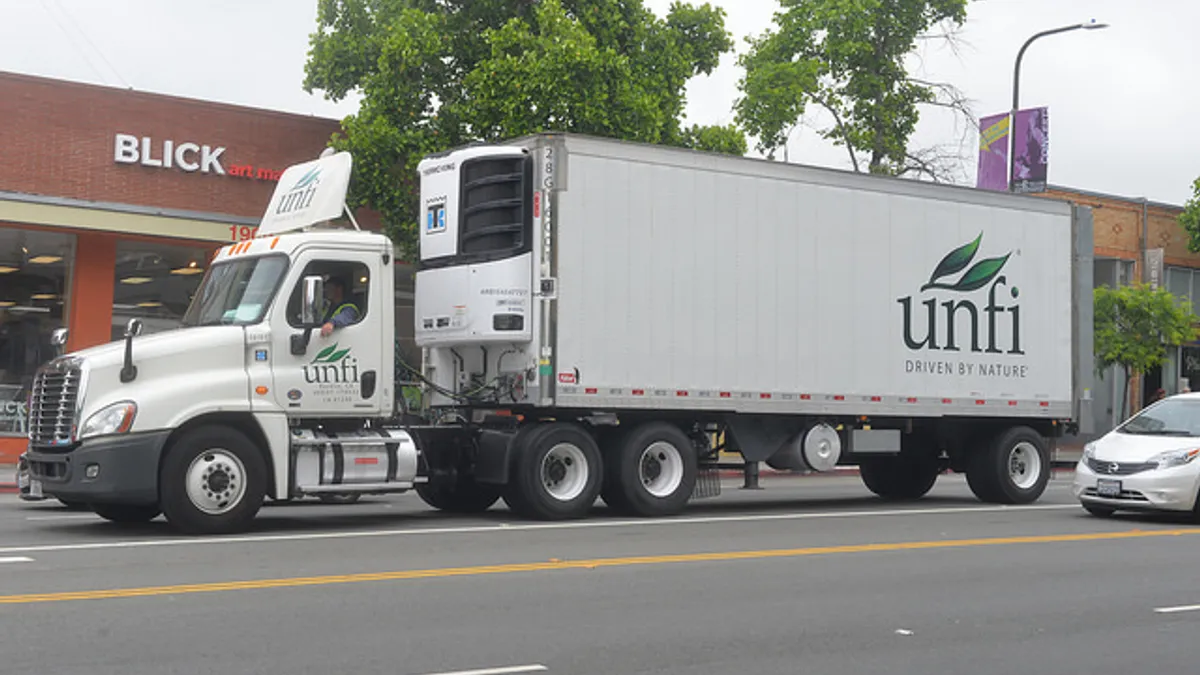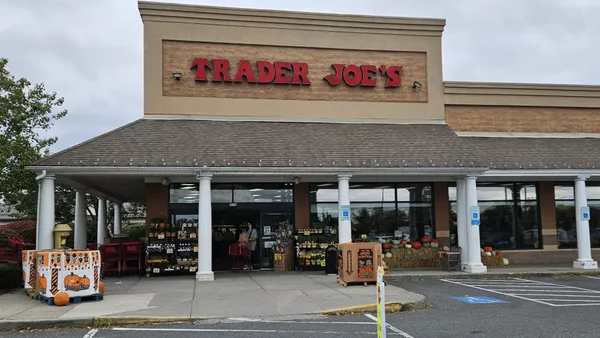UPDATE: May 21, 2020: The New York State Supreme Court dismissed all of UNFI's claims against Goldman Sachs on May 5. The terms of the contract between the grocer and the Goldman Sachs made clear that the investment bank was legally entitled to the fees it collected, and UNFI "failed to engage in a due diligence investigation or independently appraise" the risks it faced, Justice Andrea Masley ruled.
Dive Brief:
- Wholesaler United Natural Foods, Inc. has filed a lawsuit against Goldman Sachs, alleging that the bank engaged in improper conduct during the time that it advised UNFI on its $2.9 billion acquisition of Supervalu, according to a company press release. The defendants were hired to advise UNFI on the deal and to arrange financing through a syndicated loan worth $2.15 billion.
- According to the multi-count complaint, which UNFI filed in New York, Goldman Sachs allegedly put its financial interests before UNFI's, resulting in a breach of contract, fraud and misappropriating nearly $52 million in marketing and advisory fees from UNFI. Also, it accuses Goldman Sachs of arranging the deal in a way that hurt UNFI, but benefited the bank's financial arm and hedge fund clients who had bet against Supervalu in the credit-default swap market.
- Goldman Sachs has denied the allegations and indicated that it intends to "vigorously defend" itself from the lawsuit. Bank of America has declined to comment. UNFI is rumored to be seeking $500 million in damages, according to the Financial Times.
Dive Insight:
In October 2018, UNFI shelled out $2.9 billion, or $32.50 per share in cash, for Supervalu, which handled distribution for more than 3,000 stores across the U.S., in an attempt to create a premier North American wholesaler.
UNFI alleged in a lawsuit filed on Jan. 30, 2019, that Goldman Sachs abused its power and influence to maximize its profits from the deal. According to UNFI's complaint, Goldman Sachs breached its contract by arranging financing on a $2.15 billion syndicated loan in a way that benefited the bank and harmed UNFI.
The wholesaler alleged that Goldman pressured it to increase the interest rate on the loan after UNFI and Supervalu reported weak earnings shortly after the deal was completed. The deal initially called for Supervalu to offload its $1.6 billion in debt, but according to the suit the bank persuaded UNFI to name Supervalu as a co-borrower on the loan. This preserved more than $470 billion in credit-default swaps, benefiting hedge fund clients of Goldman Sachs, the suit alleges — creating a "quid pro quo" for the clients to buy some of the loan.
It was after the deal closed that UNFI claims it discovered Goldman's hedge-fund clients obtained the Supervalu credit-default swaps. The clients, the suit claimed, stood to benefit from manufacturing a default on the debt.
"While positioning itself as UNFI's trusted advisor on the one hand and its counter-party lender on the other, Goldman Sachs consolidated its command over all aspects of the transaction in order to extract millions in unjustifiable interest, fees, and other damages suffered by the Company and its shareholders," UNFI stated in a release.
The suit was a headache for UNFI as it worked to boost its business while also integrating Supervalu. During an investor day conference in January 2019, just before it filed the complaint against Goldman Sachs, UNFI outlined a complex growth and integration plan that sought to provide a broader selection of products for retailers while at the same time boosting efficiency and wringing extra costs out of the system. The company had reported a big earnings miss at the end of 2018 and admitted that improving Supervalu's performance would be a greater task than anticipated.
Altogether, UNFI believed its plan would boost net sales from just over $20 billion and $650 million in adjusted EBITDA expected in 2019 to $30 billion in sales and $1 billion in earnings over the following three years. Last October, the company, which reported $21.4 billion in net sales and $560 million in earnings for 2019, said it would not be able to meet its revenue and earnings goals by 2022.












